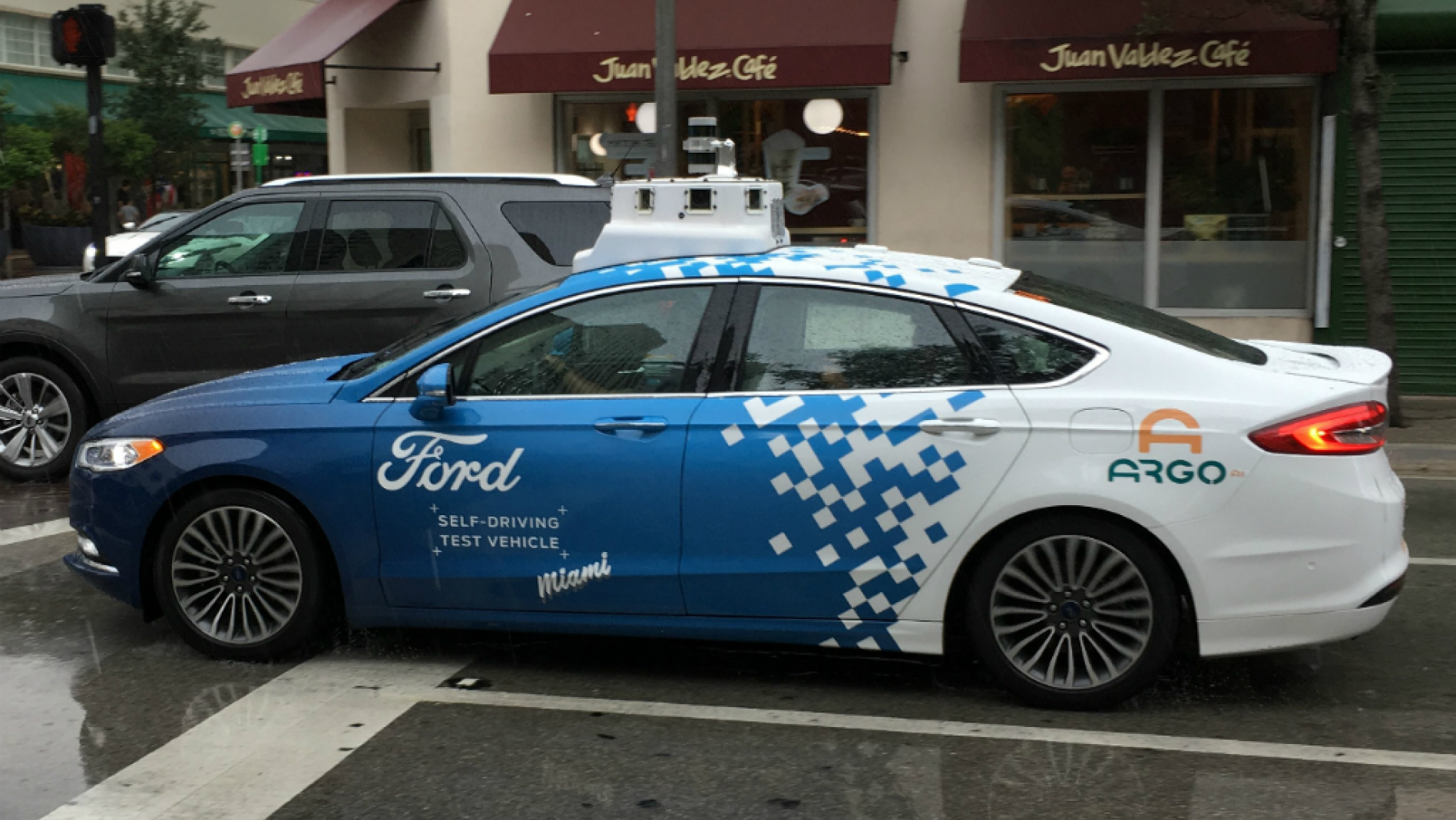Florida Paving The Way For Companies To Test Autonomous Vehicle Tech

Self-driving vehicle in urban environment.
Florida has firmly placed itself in the driver’s seat of the self-driving wave as more and more companies flock to the Sunshine State to test autonomous vehicle tech.
One of the major reasons Fortune 500s and startups alike are heading to Florida is because of eased-up regulations.
Back in June, Gov. Ron DeSantis signed House Bill 311 into law. The legislation paved the way for autonomous vehicles to be on the road without a safety driver present.
Orlando Economic Partnership CEO Tim Giuliani told CNBC that a bill like HB 311 “sends a signal that Florida is willing to continue to change its regulatory environment to adapt to new technologies.”
State Sen. Jeff Brandes, who co-sponsored HB 311, believes easing restrictions, in addition to the wonderful weather and level landscape, will have companies continuing to move their testing operations to Florida.
“It’s the third-largest state, it’s a state with no snow, it’s relatively flat, we have a strong public-university system, so Florida checks a lot of boxes,” he said. “Florida offers a diverse marketplace, and areas like Miami are really challenging. If you can test there, you develop some street cred.”
Starsky Robotics, the first to successfully test an unmanned truck on a public road, is one of those companies making the move from heavily regulated California to Florida.
During a test run a month ago, one of Starsky’s driverless big rigs hit a record-setting 55 mph on a closed stretch Lee Roy Selmon Expressway near Tampa.
The Starsky 18-wheelers use a hybrid system where remote drivers handle the first and last mile of the trip while the self-driving system takes over for the majority of the haul.
“At Starsky, we are taking a distinctly unique approach to automation and safety. We aren’t building fully autonomous trucks designed to operate without any human intervention or relying exclusively on computers to make every driving decision,” Stefan Seltz-Axmacher, the founder and CEO of Starsky Robotics, explained to VentureBeat. “We know that today humans are better at navigating many of the nuances of driving than even the most advanced computer systems, which is why we use remote drivers to help our trucks at their most contextually complex junctures.”
Argo AI, the Pittsburgh startup backed by Ford, has been testing self-driving delivery services in Miami and Miami Beach since 2018.
Impressed with Argo AI’s success, Volkswagen teamed up with Ford to work on self-driving and electric cars, with the German automaker committing a total of $2.6 billion.
“While Ford and Volkswagen remain independent and fiercely competitive in the marketplace, teaming up and working with Argo AI on this important technology allows us to deliver unmatched capability, scale and geographic reach,” Ford President and CEO Jim Hackett said. “Unlocking the synergies across a range of areas allows us to showcase the power of our global alliance in this era of smart vehicles for a smart world.”
In addition to the Argo AI investment and Volkswagen collaboration, Ford is working with Velodyne, a Silicon Valley firm creating LIDAR sensors that guide driverless cars, to reach its 2021 goal of building an autonomous vehicle without a steering wheel or pedals.
For the companies that aren’t ready to test their tech on public roads, the SunTrax self-driving vehicle testing site will soon be up and running.
“Companies from around the world are looking at it,” Central Florida Development Council President and CEO Sean Malott told Business Observer Florida. “It is a critical selection for us.”
Located off I-4 between Orlando and Tampa, the $42 million facility has an oval track that’s 2.25 miles long and five lanes wide, offering enough space for all sorts of autonomous vehicles.
Once completed, the plan is for another $90 million to be pumped into the facility to convert the infield into a simulated urban streetscape.